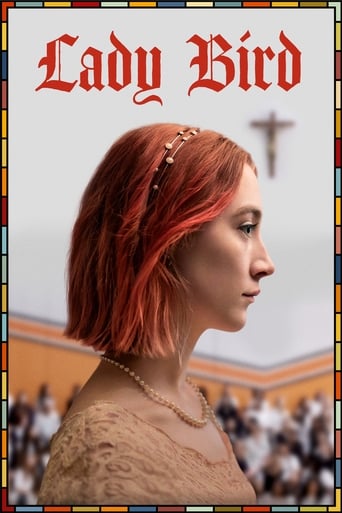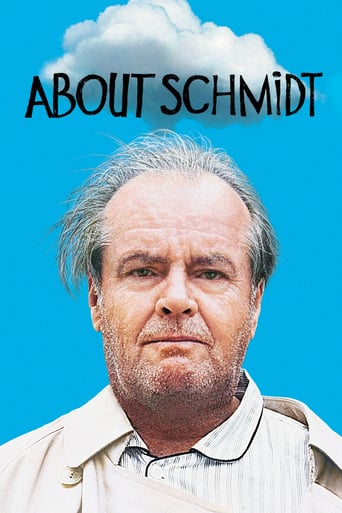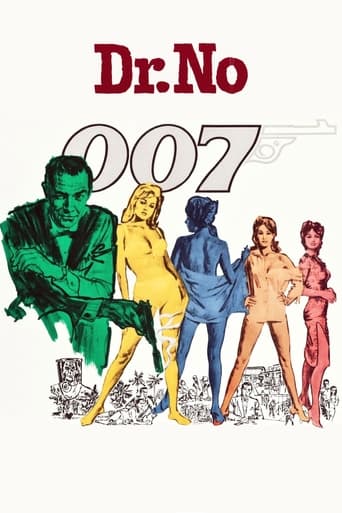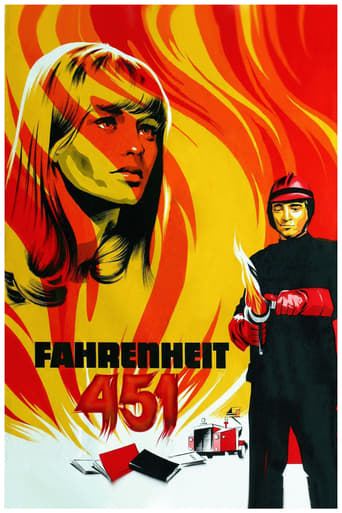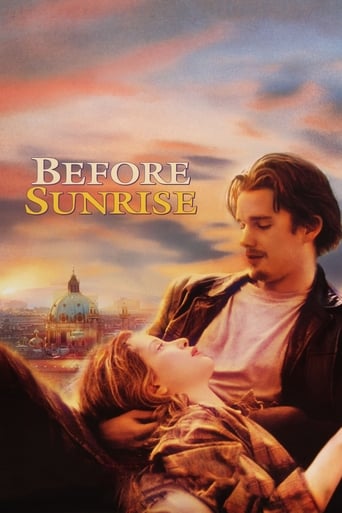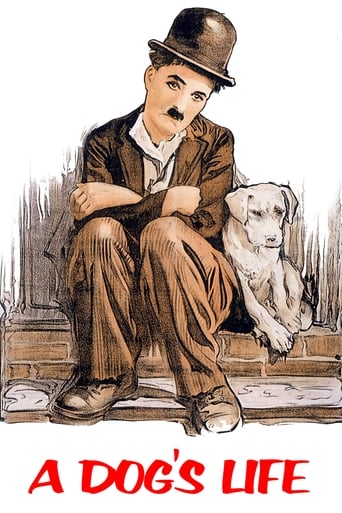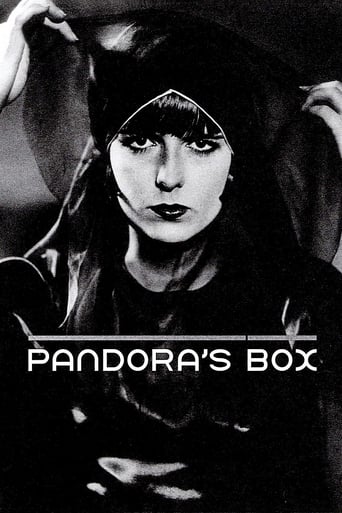


Pandora's Box
Lulu is a young woman so beautiful and alluring that few can resist her siren charms. The men drawn into her web include respectable newspaper publisher Dr. Ludwig Schön, his musical producer son Alwa, circus performer Rodrigo Quast, and seedy old Schigolch. When Lulu's charms inevitably lead to tragedy, the downward spiral encompasses them all.
-
- Cast:
- Louise Brooks , Fritz Kortner , Francis Lederer , Gustav Diessl , Michael von Newlinsky , Sig Arno , Karl Etlinger


Similar titles


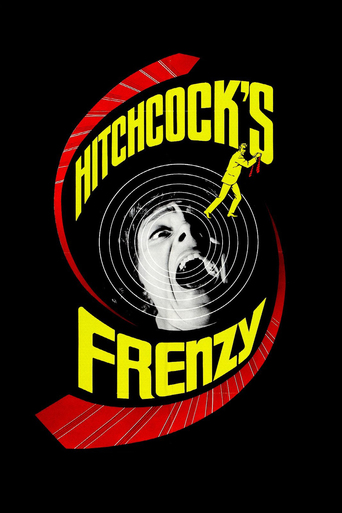
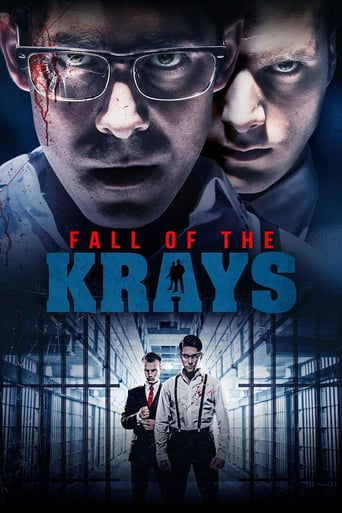

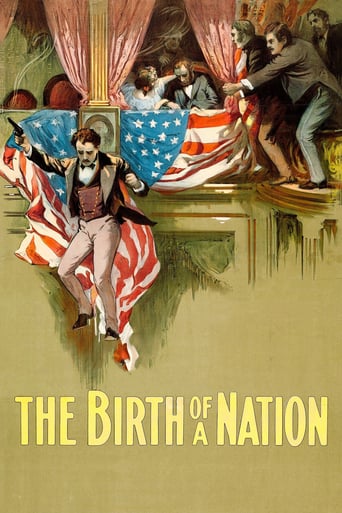
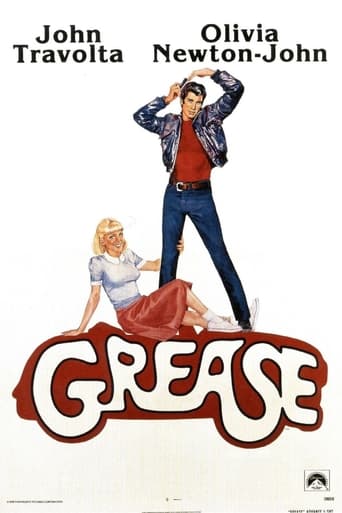


Reviews
Let's be realistic.
Excellent, Without a doubt!!
Like the great film, it's made with a great deal of visible affection both in front of and behind the camera.
It’s fine. It's literally the definition of a fine movie. You’ve seen it before, you know every beat and outcome before the characters even do. Only question is how much escapism you’re looking for.
Even though this film is brilliant, extraordinary, in every respect, it is sinister for other reasons. it is a propaganda piece through and through. other users don't attribute to the menorah its obvious significance - it denotes who is Jewish. since it is prominent and merely background just after the two minute mark of the very first act it's not a spoiler. It is worth pointing out what another IMDb user shrewdly notice and pointed out which might utterly defeat this notion - that the menorah depicted is not a Jewish menorah - it is neither a seven-armed temple menorah nor an eight-armed menorah of Hanukah which would have an additional higher place - and of course Pabst would have been aware - I cede that. Still, when I regard the image, it is so striking, and the motif of jews everywhere is either a menorah or a star, so I suggest that the menorah is suggestive nonetheless - and that is its whole point - to cast a shadow. Fact is that in this period following WW I the new Weimar government entered into the treaty of Versailles, casting lots of restrictions on Germany and obliging Germany to pay huge reparations, particularly to France. So this questioning arose premised on the superiority of Germans - how could Germans - noble, hardworking, faultless, superior - how could Germans have been defeated? Since there could be no more powerful foe, the enemy, such inquiry reasoned, resided within - what would constitute the 'stab in the back.' this line of inquiry looks to blame Germany's disgrace on anything but military prowess - what was the source of moral turpitude? cowardice? profiteering? scheming? plotting? seduction? wantonness? cheating? what could possibly have hobbled noble Germany's exalted aspirations? The source of some sort of inner degredation this was projected onto Jews, finding expression in antisemitism that was gaining traction and found a central place in Hitler's Mein Kampf.The proto-Nazi stereotype applied to the character of Schigolch is not subtle, and considering the relationship between him and Lulu ... well, you don't have to agree with this thesis, but you can't ignore it.A great study of stereotypes.
Lulu grew up in horrible conditions and the only person who comes close to a father figure is an alcoholic pimp. "Too bad," he tells her as Jack the Ripper roams the dusky alleyways of London and they both are starving, "I'd have liked to taste Christmas pudding one more time before I die." Played with incredible sex appeal by Louise Brooks (herself sexually abused as a child, according to Wikipedia), Lulu tries to get by as long as possible banking on her pretty face and adorable figure. Sex gets her everything she wants till she accidentally kills her sugar daddy (the handsome older actor Fritz Kortner). Once this wealthy, sophisticated but ultimately dumb benefactor is out of the picture, Lulu can no longer run away from life's harsh realities. Turning to the only means of survival she has ever known, she becomes a sitting duck for the worst that life has to offer. Having absolutely no compass for trustworthiness -- how could she? -- she trusts the wrong guy. What are we to take from this grim tale? Must birth be destiny? Is life a mere rehearsal for disaster? Let's hope not. Whatever one's circumstances, we can try to lead an examined life and establish a reliable, legal way to earn one's bread. Poor Lulu. Poor Countess Geschwitz (compellingly played by Alice Roberts). I hope this movie lives forever. It's important viewing.
Pandora's Box is a 1929 German silent film about the life of Lulu, a beautiful, lively, gregarious but opportunistic and manipulative woman who gets everything she wants with her seductive charms. Her life takes a positive turn at first when one of her lovers', a wealthy editor in chief Mr Schon agrees to marry her, and she is able to break into show biz. But after she kills Mr. Schon in retaliation, her life disintegrates till she is reduced to go back to her old profession as a street-walker. A lot many viewers today regard Louise Brooks' uncanny performance as bold, uncompromising and naturalistic. However, in 1929 soon after the film's release, a reviewer from New York Times had said that her expressions were 'hard to decipher at times'. After watching the film twice in two days, I too had similar question about Brook's character Lulu: what is her ultimate aim? Sometimes we find her confident and heedless of her actions but at others she radiates warmth and sympathy which contradicts her former emotions. Take Lulu's relationship with Mr. Schon, for instance. At the stage show in Act 3, Ludwig Schon along with his fiancé oversee the backstage happenings. When Lulu finds her lover with his fiancé, she flips out. The camera pans on her face and she genuinely seems heartbroken in that frame. That act made me believe Lulu, despite her promiscuity and love for money, truly loved the rich editor in chief. But during act 4 and especially in Act 5 after the ruckus in the courtroom scene, I found myself confused about Lulu's character. I remember Natasha's character from War and Peace who took some reckless decisions driven by instinct but that character, despite being unpredictable, at least had consistency. Therefore we could anticipate to an extent what she might do and become more curious about the situation. I could not say the same about Lulu at points in the film, and this may be partly attributed to the fact that the movie is silent and therefore doesn't have rather advantage of dialogs.Had there been dialogs, I would've probably got a better insight into Lulu's personality. But I should credit Brooks for giving her best shot and making her character starkly different and almost contemporary for that time; her killer looks are something to die for, seriously. I also didn't find some cohesiveness in the storytelling as well. Gustav Diessl's character, a brutal motif serving as a resolution to Lulu's life, should've got more screen time. In fact, I was under the impression she would ditch Alva, the son of Late Schon and Lulu's hapless lover, and make off with that waiter whom she was flirting for a moment at the 'hospitable and discreet' gambling den. I also felt the character of Schigolch could have had more development; it was ironical when Lulu ends up at a garret ( she had mentioned before that she wouldn't want to go back with Schigolch to his old garret), but the initial scene when Lulu danced as Schigolch played his mouth organ could've been brought back towards the end ( like showing Lulu putting on an entertaining act along with Schigolch on the streets trying to fetch some money or attracting some bawdy men perhaps). For some reason, the initial unimportant scenes, though entertaining enough, are unnecessarily stretched. For example, when Lulu refuses to perform the skit, the director could've showed her running straight into the property room instead of having Schon coming to her, pressing her arm in front of the crew and ordering her to perform ending with Lulu telling Rodrigo that they'd do the skit they had planned, before getting into the room with Schon. The film's take on lesbianism is praiseworthy and Alice Roberts deserves credit for not shying away from the role. In fact, I heard she had pitched the idea of making the character of Countess Augusta a lesbian. She displays her affection so naturally, understanding the essence of her role. I remember an episode from the reality show Top Chef when one of the female contestants was highly appreciative of a fellow lady contender, and was extremely upset when the latter was eliminated. It was later told during the reunion episode that the two women had pursued a relationship after the show. And I saw the same behavior from Roberts' character - two thumbs up for her performance. Even though chiaroscuro is heavily used to the point that sometimes characters lose their facial features, I didn't think there was any purpose to the lighting whereas in movies like Citizen Kane, the lighting created depth, style and personality. The background music is flat and for most part inconsequential and the reason I could not find a connection with the film could be attributed to this element; it seemed to say 'watch the film like you watch any other film, and when the movie finishes, you leave'. For a movie that included controversial subjects, couldn't the background music be more radical and risky instead of a generic orchestra? Pandora's Box seems to have gained critical acclaim over the years. But apart from Louise Brooks' risky performance and the fact that controversial subjects were tackled, I did not know what I was supposed to feel after the movie. Is Pandora's Box really worth the curious peek or is it just an empty box?
"She carries it like a gift she doesn't think much about, and confronts us as a naughty girl. When you meet someone like this in life, you're attracted, but you know in your gut she'll be nothing but trouble," a famous American film critic, Pauline Kael, said about the main character of this unique, very special film. Today when seeing Pabst's movie, we can add that it may constitute nothing but trouble for those who lost the essence of art and a good judge of our modern perception...Georg Wilhelm Pabst, a stylized and independent director, one of the best ones ever, a master of psycho-sexual dramas, offers us here an unbelievable atmospheric experience. He does this at multiple levels. Although there is a story, a certain prefabricated chain of events, viewers are not limited in their views to concrete framework of action but, thanks to flawless directing style, we, as viewers, are led much deeper, into feelings of characters, into their world on screen. The whole atmospheric feast is possible to achieve in PANDORA'S BOX thanks to the director's unique ability to show life, to depict the various states of mind, the various motives for actions with the climax in the final moments where motives and actions become consequences and where individual principle clashes with the social one. Isn't that the absolute success of cinema? The content, based upon the plays by Wedekind, deserves a certain amount of attention, but, when I was viewing the film, hopefully like many other of its buffs, my principal focus was drawn upon the character of Lulu and the performance by Louise Brooks - one word must be said before further analysis - magical! There has been a widespread opinion that Louise Brooks' (whose Hollywood career ended quite early as a result of her deliberate decisions) performance is one of the most genuine ones ever found on screen. Yet, at the same time, it is a performance affected by certain compromise. Dr Paolo Cherchi Usai, a curator of the film collection, said once that "Louise Brooks was way too wild in a business that was way too tame." Fortunately, however, she had one great support - Pabst himself. Under his direction, she is allowed to give the very core of herself and her talent portraying a captivating, funny, delicious, illusive, lustful, sensual, overwhelming and, beside all sympathetic femme fatal. Ms Brooks' scenes with the closeups directed onto her face, for instance near the end at the candle and mistletoe, carry powerful impressions. From the very first scenes, we get to know Lulu as a naughty girl. Yet, we seem to like her due to her distance towards the things and events she experiences. There is a combination of fun and appeal, vamp's eroticism and girl's sweetness, dynamic tension and light atmosphere. For me, the most memorable scenes were the backstage sequence where she is not "going to dance for that woman" Here, let me again quote Ms Kael who referred to these moments memorably. "For sheer erotic dynamism," Kael wrote, those backstage scenes "have never been equaled." Lulu's lover and husband to come, Dr Schon (Fritz Kortner) persuades her to perform...In the aspect of Brooks' performance, there is a certain satisfactory focus on the supporting cast. What viewers get here is the very best merit of a silent production. Eye contact, mimics, imagery, all the cast occur to feel their roles intensely like in those few masterworks of the period. First, a mention must be made of Fritz Kortner who portrays cold, dominant, strong, strict, ambitious, easily offended Dr Schon who appears to be proud and independent yet prone to female weapons... The scene he dies observed 'as if' by us and the leading character is another milestone of the film. Carl Goetz gives a sympathetic performance as Schigolch, perhaps the character we all like. A simple guy who likes Lulu, do does not take any advantage of her, who does not do any serious harm and whose most touching dream is to taste Christmas pudding one more time... Franz Lederer is convincing in the role of Alva, Schon's son, another man who loses under the spell of femme fatal. Consider his moments when he willingly and reasonably wants to leave; yet, something calls him back directly into her arms...what a magical power of these female weapons... An interesting and a very daring character in the film occurs to be Countess Geschwitz - an open indication of a lesbian character. Thanks be to Pabst for the courage to show that! Her dance with Lulu at the wedding and many other scenes are particularly well played and deserve great praise. Daring for the business too tamed... The character who represents a macho, a sort of robot unable to feel much is Rodrigo. His most unforgettable scene is his first scene and a visit he pays to Lulu's - what a try of the trapeze act! What a prospect of muscles! What a naive joy in girl's eyes! PANDORA'S BOX is a movie I consider a must see, an atmospheric masterpiece that makes unforgettable impressions. And the leading character portrayed by Ms Brooks...Wedekind described Lulu as "the personification of a primitive sexuality" but I would not hesitate to say here that Pabst and Brooks changed this 'primitive' into UNIQUE and MASTERFUL. It's a story of desire and struggle, of fun and grief, of lust and disillusion, of anything that comes out of Pandora's Box. 10/10



